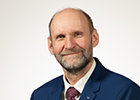Ligi ja lambad
Istung: XV Riigikogu, V istungjärk, infotund
Kuupäev: 2025-05-14 15:32
Osalevad Poliitikud:
Sõnavõtte kokku: 12
Koosseis: 15
Päevakorra kestus: 11m
AI kokkuvõtted: 12/12 Sõnavõtud (100.0%)
Analysis: Structured Analysis
Poliitikute Kõneaeg
Poliitikud
Analüüs
Kokkuvõte
Eesti riigikogu avaettekandes puudutati teemalist mõistet “Ligi ja lambad” ning arutleti ametnike ja poliitikutega seotud vastutuse ning küsimuse – kes on need “lambad”, keda Riigikogus või valitsuses arutatakse. Seeder tõstatas, et ametnike ja poliitikute vastandamine on vist viinud vildakale mõtteviisile ning tungis vajaduse järele nimeliselt selgitada, kes neid lambakoore moodustavad. Samas viidati väliskeskkonna kommentaaridele ja ajaloolistele näidetele, mis rõhutavad tasakaalustatud suhtumist ning arutleti ka laiemalt riigi juhtimise kvaliteedi tagamisest läbi ametnike ja valitsuse koostöö.
Tehtud otsused 1
Pole tehtud otsuseid. Arutelu toimus peamiselt informatiivses vormis ning keskendus küsimustele ja vastustele ning tulevase töö suunale kui bürokraatia vähendamisele ja normide korrigeerimisele.
Aktiivseimkõneleja
Kõige aktiivsem kõneleja oli pid Iov5Jop5kE4, kellel oli peaministri roll ja kes esindas valitsust (parempoolsest poliitilisest spektrist). Ta selgitas ja kommenteeris valitsuse kavasid ning mida need tähendab laiemas poliitilises kontekstis.
Esimees Lauri Hussar
AI kokkuvõte
Esimees Lauri Hussar kuulutab, et järgmiseks küsijaks on Helir-Valdor Seeder, kelle küsimus peaminister Kristen Michalile käsitleb teemat „Ligi ja lambad“.

Helir-Valdor Seeder
Profiileerimine Isamaa fraktsioonAI kokkuvõte
Helir-Valdor Seeder rõhutab professionaalsete ametnike tähtsust ning vastandamise vältimise olulisust, viitab Jürgen Ligi ütlusele umbes 3000 ametniku rollist riigi kvaliteedi hoidmisel ning küsib avalikult, kes need “lambad” on ja kas need on pärit Eesti 200-st ja Reformierakonnast, paludes parlamendi ees selgitust.
Peaminister Kristen Michal
AI kokkuvõte
Peaminister Kristen Michal ütles, et Rail Baltiku vastuseis võib olla Kremlile kasulik, rõhutas, et tema sõnu ei tohi valesti tõlgendada ning soovitas arutleda Taavi Aasa ajal toimunud taristuteemade üle, kuna igaüks otsustab ise.
Esimees Lauri Hussar
AI kokkuvõte
Esimees Lauri Hussar palub, et peaminister vastaks kohe Helir-Valdor Seedri küsimusele.
Peaminister Kristen Michal
AI kokkuvõte
Peaminister rõhutas, et kriitika peab olema otse ja nimeliselt ning üldine riigi või poliitikute süüdistamine on kulunud ning ebamäärased süüdistused tuleb kõrvale jätta.
Esimees Lauri Hussar
AI kokkuvõte
Esimees tänab ja palub Helir-Valdor Seederil esitada täpsustava küsimuse.

Helir-Valdor Seeder
Profiileerimine Isamaa fraktsioonAI kokkuvõte
Helir-Valdor Seeder kritiseeris loosungilist bürokraatia vähendamise retoorikat, tõi esile Riigikontrolli tähelepanekud ning küsis, kes täpselt ja kui palju ametnikke tõepoolest kärpitakse (kas 3000 või ka laiemalt töölepingu seaduse alusel töötajad) ning milline on kärpekava tegelik ulatus ja rakendamine.
Peaminister Kristen Michal
AI kokkuvõte
Peaminister Kristen Michal teatas, et järgmiste kolme aasta jooksul rakendatakse 10% suurune avaliku sektori kärbe (pensionid erandina) koos prioriteetidega õpetajad, kaitse ja sisejulgeolek, 2025–2028 kokku 1,4 miljardit kärpeid; 2025. aasta eelarves langevad tööjõu- ja majandamiskulud umbes 1%, eelarve kasv on väiksem kui majanduskasv ning riigikaitsekulud ja sotsiaalkulud kasvavad ning valitsemiskulud langevad; väide avaliku sektori kasvu 10 000 inimese kohta oli vale, lisandusid vaid 155 teenistujat (55 Politsei- ja Piirivalveametisse ning 138 Kaitseväe koosseisu), kuid eesmärk on vähendada halduskoormust nii erase kui avalikus sektoris umbes viiendiku võrra läbi normide vähendamise, ja selle edenemist saab jälgida valitsus.ee loendurist.
Esimees Lauri Hussar
AI kokkuvõte
Esimees tänab ja teatab, et kolleeg Mart Maastik esitab lisaküsimuse.

Mart Maastik
Profiileerimine Fraktsiooni mittekuuluvad Riigikogu liikmedAI kokkuvõte
Maastik kritiseeris haridusministri määrust, millega kooli algusaeg viidaks kell üheksa hommikul (võimalusega varasema või hilisema alguse), sest see tekitab maapiirkondades suuri probleeme transpordi, graafikute ja lisakuludega ning näib olevat põhjendamatu bürokraatia.
Peaminister Kristen Michal
AI kokkuvõte
Peaminister Kristen Michal ütles, et valitsus püüab elu lihtsustada, haridusministeeriumi määrus on arutelul ning koolid saavad vaikimisi algusaega ise otsustada (enamasti kell 9, mõnel koolil kell 8), rõhutades koolide autonoomiat ja lihtsust ning paludes Riigikogus mitte kedagi lambaks nimetada.
Esimees Lauri Hussar
AI kokkuvõte
Esimees Lauri Hussar tänab ja teatab, et tänase kolmanda küsimuse käsitlemine lõpetatakse.